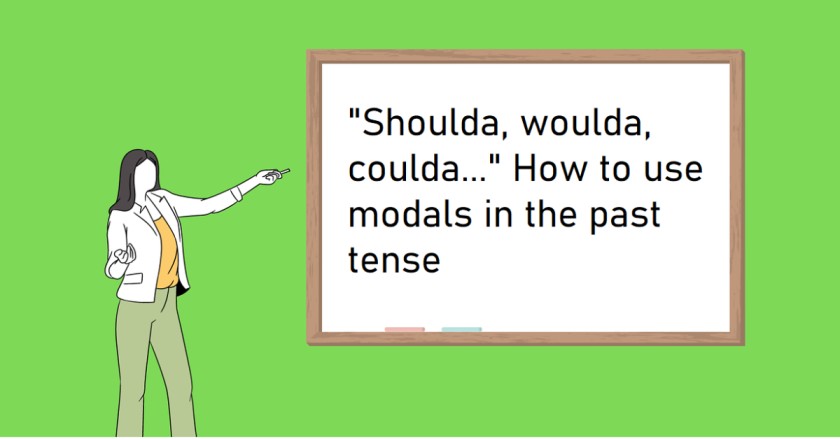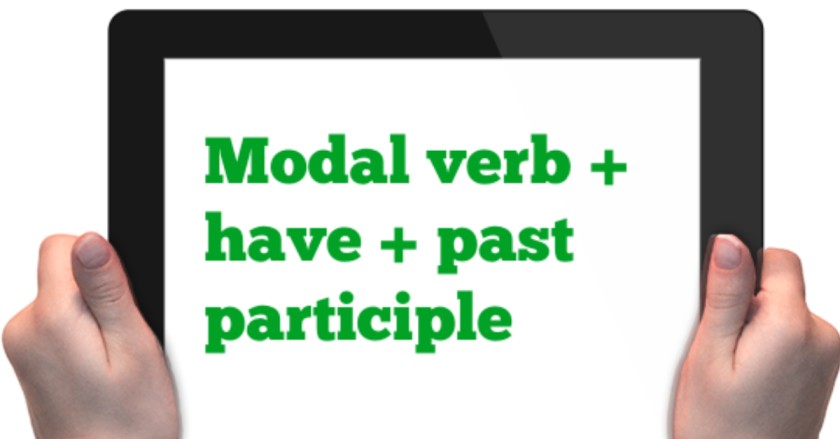- Might have
- May have
- Could have
- Should have
- Must have
- Would have
👉 First of all lets see the abbreviation of these past modals but we use them in spoken only.
a. “May´ve” d. “Shoulda”
b. “Coulda” e. “Migita”
c. “Woulda” g. “Musta”
🔲 USE of MODAL VERBS
♥️ 1. Might/may have + V3
🔹Use these modals to speculate about the past. But may have has a slightly higher probability than might have.
Eg: 1
✅ Why is he late? He might have forgotten the meeting.
Eg: 2
✅ I couldn´t get my key. Oh I may have left in the kitchen. This indicates that the boy is a little bit sure about the place where he left it.
NB. 👉We can also use MIGHT HAVE for actions didn´t happen in the past.
Eg 3:
✅ Did you see the thief who caught? He requested me to hold the door of the car which was stealing. I might have arrested by now.

♥️ 2. Could have + V3
🔹Use to talk about ability in the past but didn´t use it.
OR
To introduce possibilities if something had been different in the past.
Eg:1 The football team could have played well to be a champion of champions. This means they had an opportunity to play well but the didn’t use it.
Eg:
✅You could have called me, I was able to help you.
✅ He could have stayed home, he decided to go out though.
✅ Wow! Good job. You couldn´t have done better.
🔸 would
For imaginary
Eg:1
If I were rich, I would help all needy and homeless children in the world.
This means, I am dreaming to do something if I were able to do so.
♥️ 3. MUST HAVE + Past participle
🔹Use must have + past participle to talk about certain things in the past.
Eg: why is not he here yet? He couldn´t have forgotten our date.
♥️4. SHOULD HAVE+ past participle
🔹We use this to talk about past mistakes, recommendations and criticism about the past.
OR
When a different action was recommended in the past.
This past modal is quite useful to express a regrade about things we did in the past.
Eg: 1
She has revealed my secret to others. I should not have told her all about my life story.
Eg: 2
Sorry, I should have called you before you came here.
Eg: 3
✅ I shouldn´t have talked him in that way.
♥️ 5. WOULD HAVE+ past participle
🔹We use this past modal to talk about past possibilities and their consequences.
Eg: 1
✅ I would have been here an hour ago, but I missed my train.
✅ He wouldn´t have crushed if he had drunken properly.
Eg: 2
If you arrive at airport and if you miss the flight, you would say:
⚠️ BE CARE FULL ON THE DIFFERENCE BETWEEN COULD HAVE AND WOULD HAVE
Both of them defines the probability and imaginary. Nevertheless, would have is more likely to happen and expresses more certainty than could have.
Eg: 1
I got a 83 on the test. If I had gotten two more points, I would have scored an “A” grade.
FAQ’s
How do you use modal verbs past?
While communicating past activities, may, may, could, should and ought to go before have + past participle, as in the accompanying model. The blast was exceptionally clearly. Indeed, even individuals living a few kilometers away high priority heard it. To frame a negative past tense modular sentence, utilize modular + not + have + past participle.
Do modal verbs have past forms?
Center modular action words have just a single structure. They have no to-infinitive structure, – ing structure, past structure or – ed structure. We need to rephrase what we need to say by utilizing different articulations: I’d very much want to have the option to see the Taj Mahal one day.
What is the past of must?
The previous tense of “must” is moreover “must”. In principal provisos, this utilization of the past tense is quite often scholarly (see Lord James Book of scriptures, Leiber, and Alcott citations at Citations:must). In subordinate statements, it is more normal: He understood what he should do.
